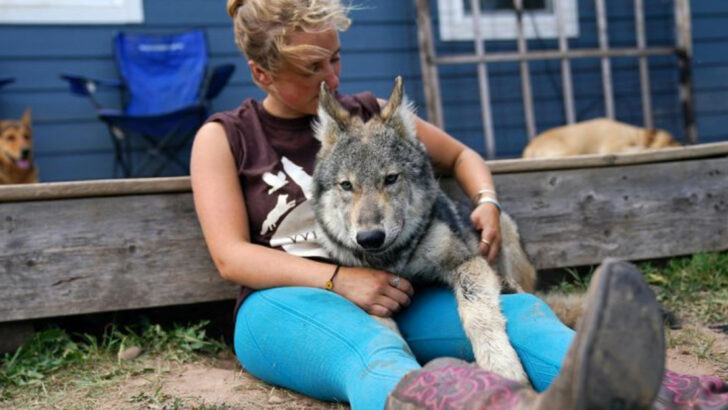Wolves aren’t the villains of the countryside—they’re the unexpected allies farmers never saw coming.
For decades, they’ve been cast as livestock-slaughtering menaces, blamed for everything from vanishing sheep to restless nights. But the truth? It’s wilder—and a whole lot more helpful.
These apex predators keep other nuisances in check. Think crop-trampling elk, disease-spreading rodents, and even aggressive coyotes. When wolves move in, balance starts to shift in a way that benefits the entire farm.
It’s not about turning pastures into predator playgrounds—it’s about understanding the ripple effect of nature’s most misunderstood guardian. Grab your pitchfork and rethink everything you’ve heard. The wolf’s side of the story might just surprise you.
Natural Pest Control
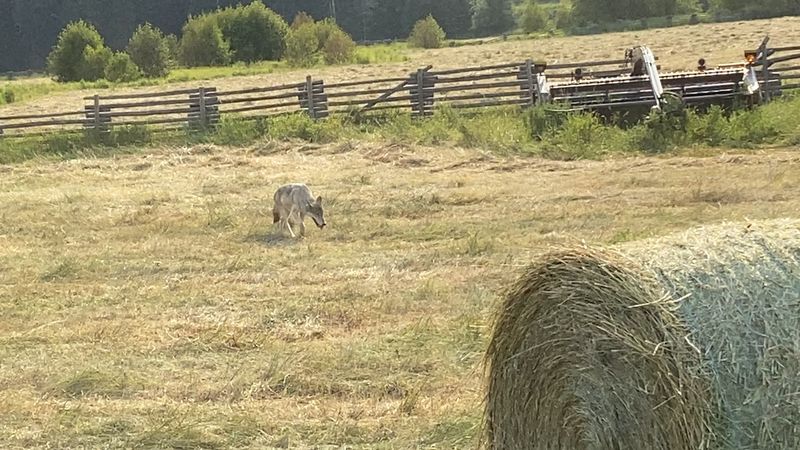
Wolves are natural predators, expertly keeping rodent populations in check. Rodents may seem insignificant, yet they pose a significant threat to crops, causing substantial damage. By preying on these small creatures, wolves provide a natural pest control service to farmers.
This reduces the need for chemical pesticides, promoting healthier crops and soil. Anecdotal evidence from farmers suggests that areas with wolf activity see fewer crop losses due to pests.
This symbiotic relationship benefits both wolves and farmers, fostering a more balanced ecosystem. Wolves inadvertently protect crops, showcasing their integral role in sustainable agriculture.
Biodiversity Boost
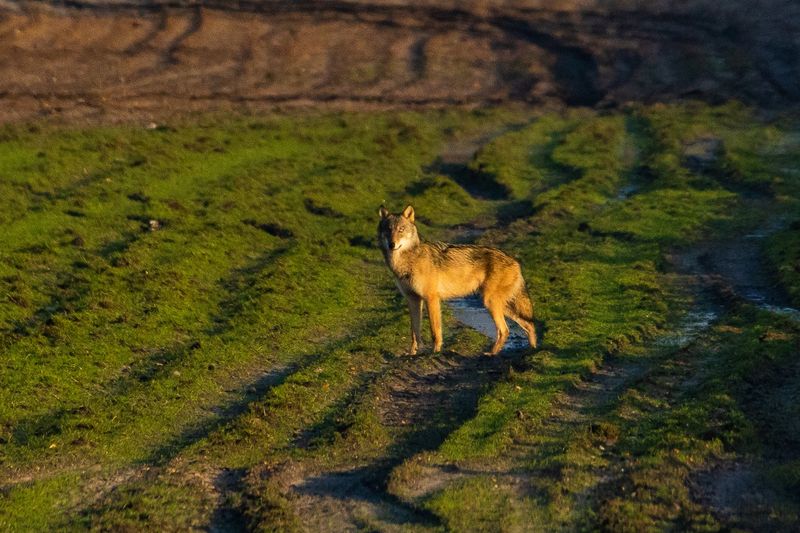
Wolves contribute significantly to biodiversity, an often-overlooked aspect of their presence. Through predation, they help maintain healthy populations of various species, preventing any one species from dominating.
This balanced biodiversity supports agricultural ecosystems, enhancing soil health and crop yields. The presence of wolves creates a chain reaction, benefiting countless other species, including those crucial for farming.
Farmers notice richer soil and healthier crops in areas with balanced ecosystems. This natural equilibrium, maintained by wolves, ensures that farms thrive alongside nature, making wolves invaluable allies in agricultural success.
Controlling Deer Populations

An overabundance of deer can have devastating effects on crops and young trees. Wolves naturally control deer populations, preventing overgrazing and protecting plantations.
This control helps maintain the balance in forested areas near farms, directly benefiting agricultural productivity. Farmers often find that regions with wolf activity experience less crop damage.
Wolves, through their predatory habits, ensure that deer populations do not spiral out of control, thus preserving the delicate ecological balance necessary for successful farming. Their presence acts as a natural safeguard against agricultural loss.
Reducing Disease Spread
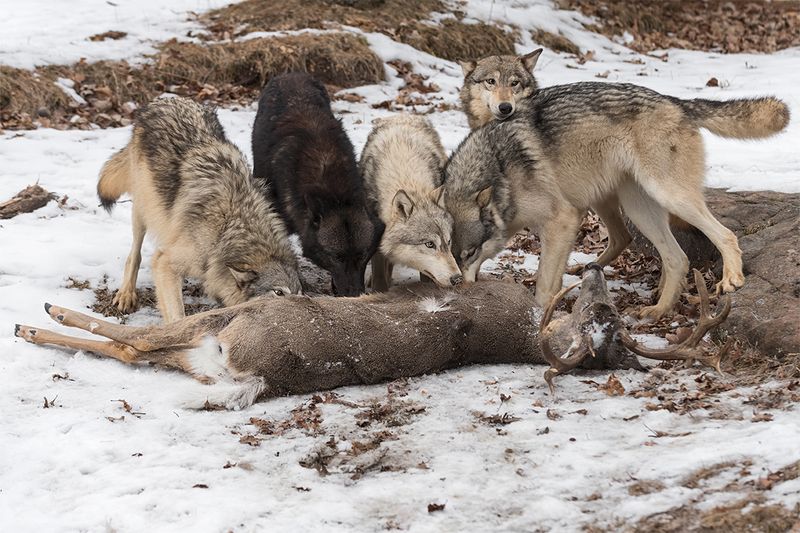
Wolves are key players in controlling diseases among wildlife. By preying on sick or weak animals, they reduce the spread of diseases that could otherwise impact livestock.
This natural selection process leads to healthier wildlife populations, indirectly safeguarding farm animals. Farmers benefit from this reduced risk of disease transmission, especially in regions where livestock and wildlife interact closely.
The presence of wolves is thus a natural ally in disease management on farms, complementing human efforts. This dynamic highlights the complex, yet beneficial, role wolves play in maintaining farm health.
Supporting Pollinator Habitats
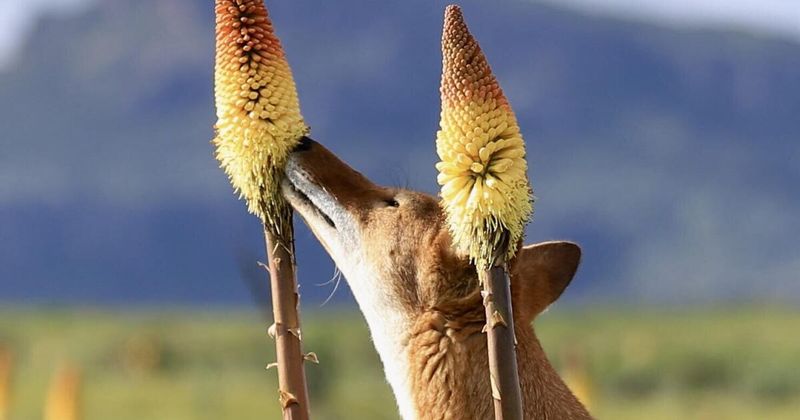
Wolves indirectly support pollinator populations by maintaining the health of their habitats. Through their impact on prey species, wolves promote plant growth and diversity, creating thriving environments for pollinators.
Healthy pollinator populations are crucial for crop production. Farmers benefit from increased pollination efficiency, leading to higher yields. This indirect assistance from wolves contributes significantly to agricultural success.
By fostering environments where pollinators can thrive, wolves enhance the productivity of farms. Their role in supporting these essential creatures underscores yet another surprising way they aid agriculture.
Preventing Overgrazing
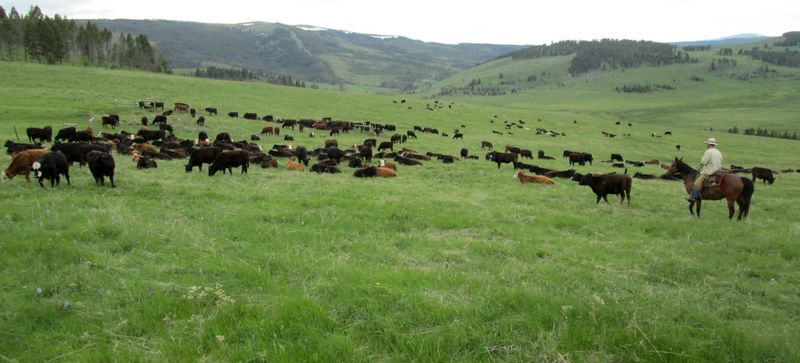
Wolves help prevent overgrazing by regulating herbivore populations. Overgrazing can lead to soil degradation and reduced crop productivity, affecting farm sustainability.
By controlling herbivore numbers, wolves ensure that vegetation is not exhausted, preserving the land’s fertility. This balance is crucial for long-term agricultural success.
Farmers often notice healthier pastures and more robust crop growth in areas where wolves are present. This natural regulation highlights the indispensable role wolves play in maintaining the vitality of agricultural landscapes.
Improving Soil Health

The presence of wolves contributes to improved soil health, an indirect but vital benefit for farmers. By managing herbivore populations, wolves prevent soil erosion, maintaining its richness and structure.
Healthy soil supports diverse plant life, enhancing agricultural productivity. Farmers observe richer soils and better crop yields in regions with balanced ecosystems.
Wolves, through their ecosystem management, play a crucial role in sustaining soil health. This underlines their importance not just as predators, but as stewards of the land, vital for successful farming.
Enhancing Water Quality
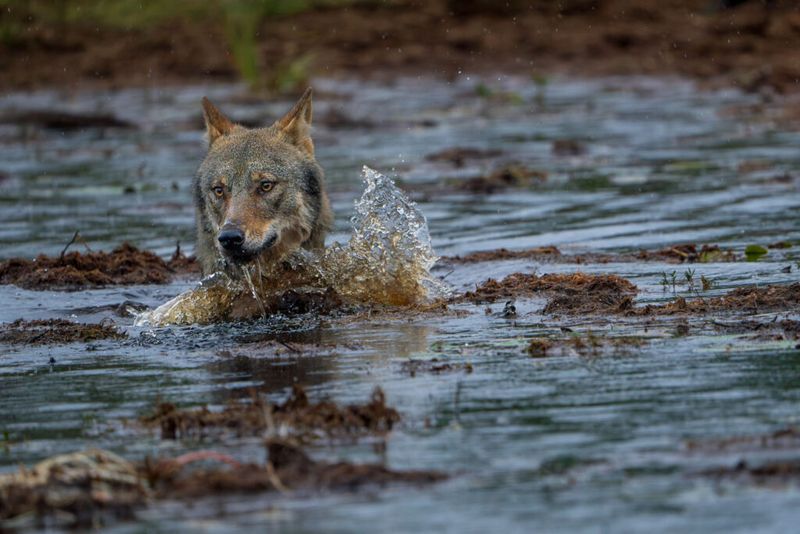
Wolves contribute to better water quality by influencing the ecosystem. Their predation keeps herbivore populations in check, reducing erosion and sedimentation in water bodies.
This natural control ensures cleaner water sources for agricultural and livestock use. Farmers benefit from improved water quality, which supports healthier crops and animals.
The presence of wolves thus extends beyond land management, highlighting their role in maintaining water purity. This unexpected benefit underscores the multifaceted advantages they bring to farming.
Promoting Tree Growth
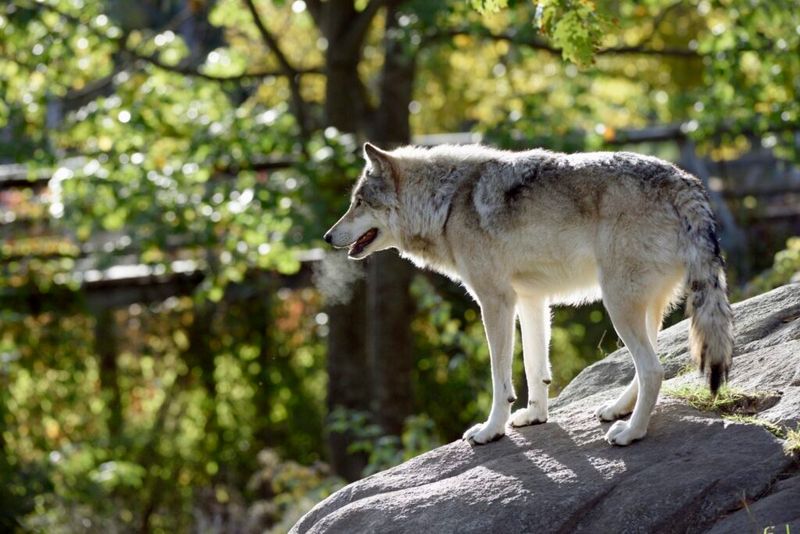
Wolves indirectly foster tree growth by managing herbivore populations that feed on young saplings. This control allows forests and woodlands to regenerate more effectively.
Thriving forests support agricultural practices by stabilizing the climate and conserving soil. Farmers notice improved microclimates and reduced land degradation in areas with healthy tree growth.
The role of wolves in promoting forest health highlights their critical contribution to sustaining agricultural landscapes, ensuring that farms benefit from more than just the land they directly cultivate.
Encouraging Eco-Tourism
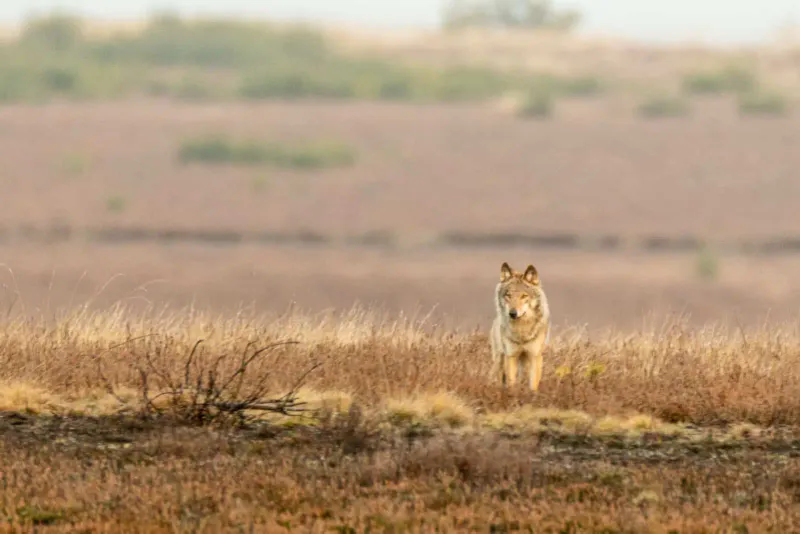
Wolves attract eco-tourists, creating economic opportunities for farmers through tourism. Visitors eager to observe wolves in their natural habitat boost local economies.
Farmers can diversify their income by offering lodging and tours, capitalizing on this interest. This additional revenue supports farm operations and promotes community development.
The draw of wolves as a tourist attraction adds an unexpected layer of value to their presence, turning potential conflict into economic gain. This aspect showcases how wolves can benefit farmers beyond traditional agriculture.
Historical Cultural Significance
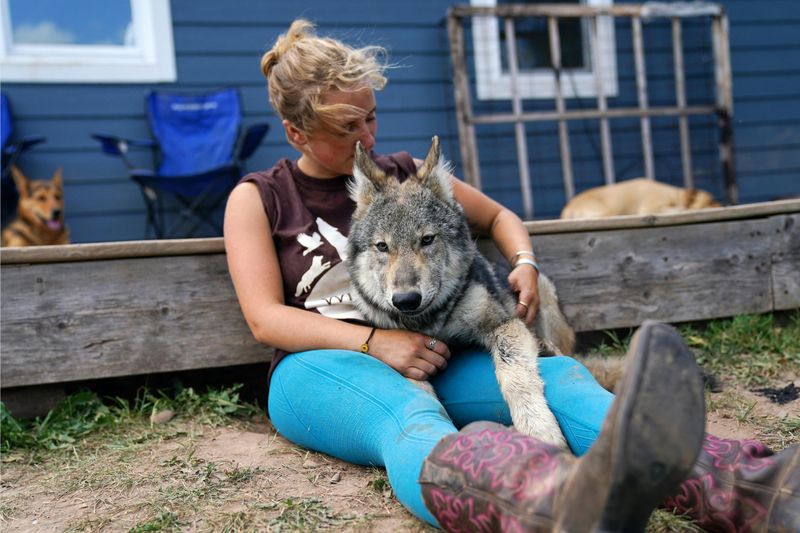
Wolves hold cultural significance, enriching the heritage of farming communities. Their presence in folklore and tradition fosters a sense of identity and continuity.
Farmers often find pride and unity in shared stories and historical connections with wolves. This cultural bond strengthens community ties, supporting collaborative agricultural efforts.
Embracing the cultural narratives surrounding wolves enhances community resilience and identity, highlighting how these animals contribute to more than just ecological balance.
Natural Fertilization
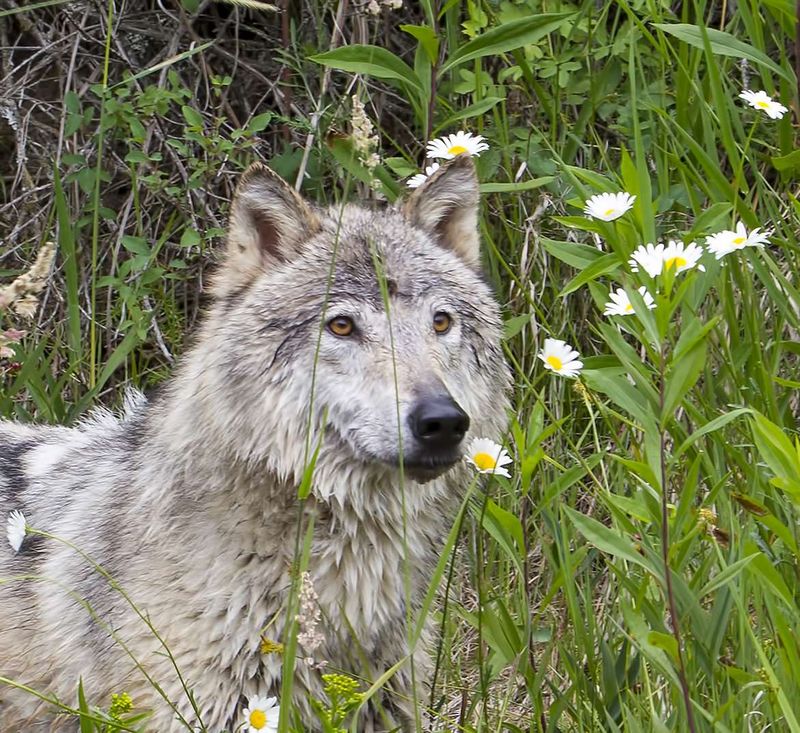
Wolves contribute to natural fertilization by influencing nutrient cycling. Their predation leads to the decomposition of animal remains, enriching the soil with organic matter.
This natural process reduces the need for chemical fertilizers, promoting sustainable farming. Farmers benefit from improved soil fertility and healthier crops.
Wolves, through this indirect method, support efficient nutrient recycling, highlighting their role in fostering sustainable agricultural practices. This unexpected benefit underscores the depth of their impact on farming landscapes.
Reducing Livestock Predation
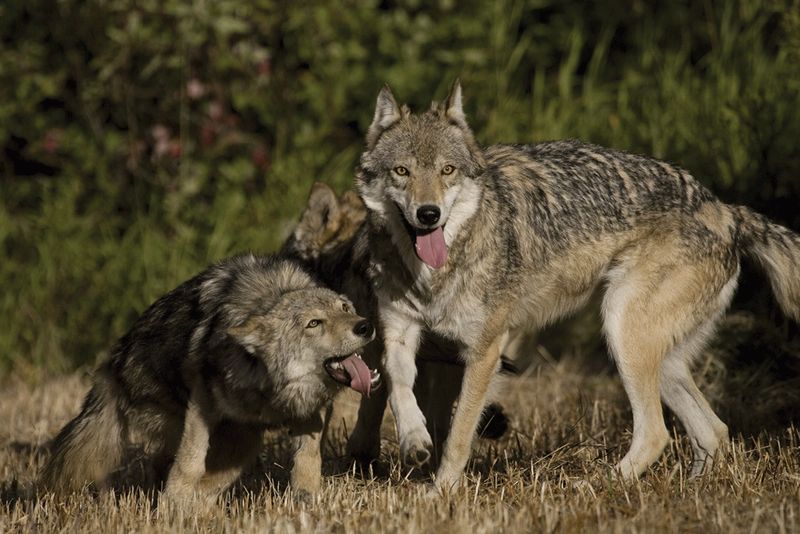
Wolves can inadvertently reduce livestock predation by deterring other predators. Their presence discourages coyotes and feral dogs, which are more likely to prey on livestock.
Farmers experience fewer losses, as wolves inadvertently protect sheep and cattle. This natural deterrent is an unexpected ally in safeguarding farm animals.
The complex dynamics of predator interactions reveal how wolves indirectly aid farmers, showcasing their beneficial impact on agriculture.
Encouraging Regenerative Practices
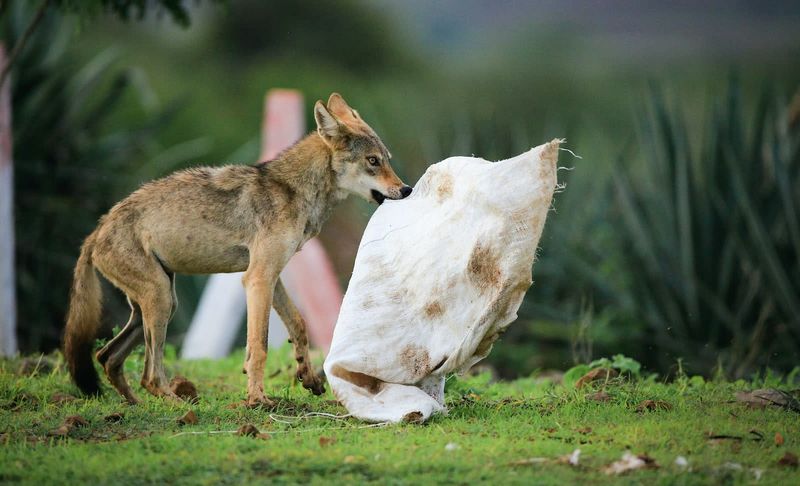
The presence of wolves encourages regenerative agricultural practices. Farmers adapt by implementing wildlife-friendly measures, promoting biodiversity and ecosystem health.
These practices lead to more resilient farms, capable of withstanding environmental changes. Wolves, through their influence, foster a mindset of sustainability among farming communities.
This shift towards regenerative agriculture benefits both wolves and humans, highlighting the broader impact of their presence on farming practices.
Educational Opportunities
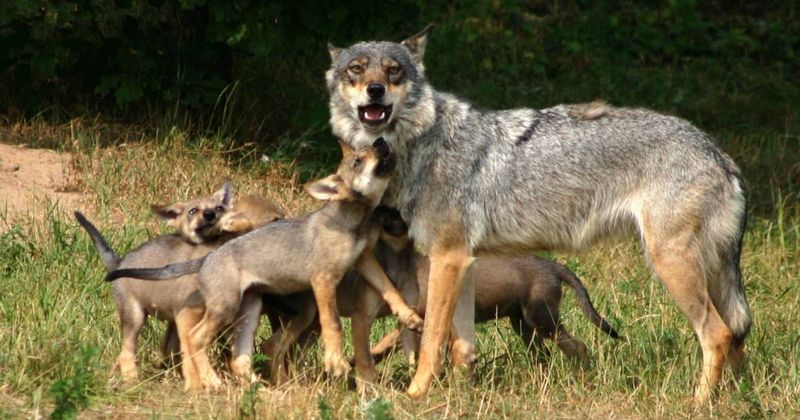
Wolves present unique educational opportunities, fostering a deeper understanding of ecology and agriculture. Schools and farms collaborate to teach students about the symbiotic relationships between wolves and farming.
These educational initiatives promote environmental awareness, encouraging future generations to embrace sustainable practices. Farmers benefit from community support and increased interest in agriculture.
The educational aspect of wolves enriches farming communities, demonstrating their role in shaping informed and environmentally conscious citizens.

